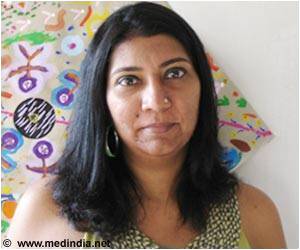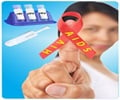Parents engaging in conversations about safe sex with their gay or bisexual sons reduce their risk of contracting HIV through sexual behavior.

‘Online toolkit helps parents improve communication with gay and bisexual sons about sexual behaviors that help them stay away from HIV.’





The study is the first to focus on the parents of gay or bisexual sons and the first to show evidence of positive effects in a randomized controlled trial.The results of the new study are critical because gay and bisexual youth make up nearly 80% of all HIV infections among teens. Until now, however, there were very few public health interventions aimed at reducing the HIV risk among this group.
“By focusing on the parents, this study shows we might be able to reduce HIV risk among gay and bisexual male youth,” said David Huebner, Professor of Prevention and Community Health at the Milken Institute School of Public Health at George Washington University.
Parents represent an untapped yet promising resource in preventing HIV infection and improving sexual health among this underserved population.
Parental Intervention: Great Tool for HIV Prevention among Gay/Bisexual Youth
To know more about their role, researchers recruited 61 parents with sons aged 14-22 who had come out as gay or bisexual at least a month earlier. Half were assigned to the control group; these parents watched a 35-minute documentary film designed to encourage parents to better understand and accept lesbian, gay, or bisexual children.The other half of the parents were enrolled in an online program, Parents and Adolescents Talking about Healthy Sexuality (PATHS). The online program included videos and instructions for parents about how to improve their communication with a gay or bisexual son about staying healthy, and how to engage in other parenting behaviors that can help promote sexual health.
Parents in this intervention arm of the study had a to-do list and could opt to take a variety of actions aimed at improving their interactions with their sons about sexual health.
Studies show that when parents have more frequent, higher-quality conversations about condoms and HIV with their sons, gay or bisexual youth are less likely to engage in sexual behaviors that can put them at risk for HIV.
Both at the beginning and the end of the three-month study, parents, and sons were separately surveyed about how much parents engaged in the conversations and behaviors that the toolkit recommended. Both parents and sons independently reported that parents in the intervention arm talked more to their sons about sexual health and helped them learn to use condoms correctly.
They also helped their sons get an HIV test. In the next step, they need to demonstrate that these changes in parent behaviors translate into better sexual health outcomes for the sons.
Source-Eurekalert















